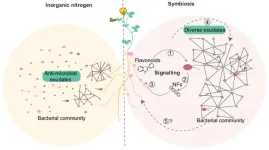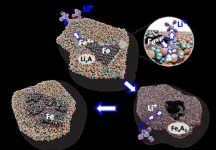CHICAGO ― The University of Texas MD Anderson Cancer Center’s Research Highlights showcases the latest breakthroughs in cancer care, research and prevention. These advances are made possible through seamless collaboration between MD Anderson’s world-leading clinicians and scientists, bringing discoveries from the lab to the clinic and back.
This special edition features presentations by MD Anderson researchers at the 2024 American Society of Clinical Oncology (ASCO) Annual Meeting. In addition to the studies below, forthcoming press releases will highlight groundbreaking clinical results from:
A first-in-human trial of an antibody-drug conjugate for patients with metastatic colorectal cancer (Abstract 3000) A first-in-human trial evaluating a ubiquitin-specific peptidase 1 (USP1) inhibitor for patients with advanced solid tumors (Abstract 3005) A Phase III randomized trial of intensity modulated proton therapy (IMPT) versus intensity modulated photon therapy for head and neck oropharyngeal carcinoma (Abstract 6006) The Phase Ib/II FELIX study evaluating chimeric antigen receptor (CAR) T cell therapy and stem cell transplantation in patients with relapsed/refractory B-cell acute lymphoblastic leukemia (Abstract 6504) A retrospective analysis evaluating venetoclax doublets in older patients with newly diagnosed acute myeloid leukemia (Abstract 6507) Information on all MD Anderson ASCO Annual Meeting content can be found at MDAnderson.org/ASCO.
Combination treatment shows promise for patients with leptomeningeal metastasis (Abstract 2018)
There are limited options for patients who develop leptomeningeal metastasis (LM), which is associated with progressive neurologic symptoms and a poor prognosis. A Phase II study led by Rashmi Murthy, M.D., Barbara O’Brien, M.D., and colleagues previously reported efficacy data on the highly selective HER2-directed tyrosine kinase inhibitor tucatinib, in combination with trastuzumab and capecitabine, for patients with LM from HER2+ breast cancer, with a median overall survival of 10 months. In updated results, of 13 participants able to be evaluated for LM response, five (38%) achieved LM objective response, assessed using a composite of clinical tools. All patients achieved clinical benefit (stable disease or better), and the majority (58%) of those with neurologic deficits at baseline experienced improvement. This is the first prospective evidence of clinically meaningful benefit of a systemic therapy regimen in patients with HER2+ breast cancer LM, highlighting its potential as a viable initial approach to improve outcomes for these patients. O’Brien will present the updated findings June 2.
Fecal transplants are beneficial for treating immune-induced colitis (Abstract 2517)
Immune-mediated colitis (IMC) is a common side effect of immune checkpoint inhibitors and typically requires immunosuppressive medications. However, some cases do not respond to these medications, creating a significant treatment challenge. In a study led by Yinghong “Mimi” Wang, M.D., Ph.D., 59 patients with refractory IMC and severe symptoms were treated with fecal microbiota transplantation. After treatment, 84.7% of patients showed a positive response, with a median time to symptom improvement of just four days. Additionally, patient-reported outcomes showed dramatic reductions in symptom burden. Complication rates were low, with 30.5% of patients experiencing mild transient discomfort, such as nausea and bloating, at 7 days and 18.6% at 30 days. These findings suggest fecal transplants could be an alternative treatment for refractory IMC, helping patients avoid long-term dependency on steroids and other immunosuppressive drugs. Wang will present the results June 2.
Biomarker test shows promise in predicting anal cancer recurrence risk (Abstract 3513)
Previous infection with human papillomavirus (HPV) is associated with over 90% of anal cancers, which are being diagnosed more frequently in the U.S. Researchers led by Van Morris, M.D., studied the presence of circulating tumor DNA (ctDNA) as a potential biomarker to predict outcomes for patients undergoing standard chemoradiation (CRT) treatment. Using a highly sensitive assay, they measured HPV ctDNA before, during and after CRT in patients with localized anal cancer. The presence of HPV ctDNA three months after CRT was associated with an increased risk of cancer recurrence. All patients with detectable HPV ctDNA at three months experienced recurrence, compared to 8% of those who tested negative. These results highlight the potential for ctDNA detection as a prognostic biomarker in anal cancer care, and they will be utilized in a clinical trial exploring immunotherapy for treatment of HPV ctDNA(+) cancers. Morris will present the findings June 3.
Adding chemotherapy after chemoradiation does not improve outcomes for patients with high-risk, early-stage cervical cancer following hysterectomy (Abstract 5504)
Patients with early-stage cervical cancer typically are treated with a hysterectomy, but many also have high-risk features that make them vulnerable to recurrence, highlighting a need to develop more effective treatments for this patient population. In a 13-year, Phase III international trial, Anuja Jhingran, M.D., and colleagues examined the efficacy of adjuvant, or post-surgical, chemotherapy after concurrent chemoradiation (CRT) in 236 patients with high-risk, early-stage cervical cancer following radical hysterectomy. For patients receiving only CRT, the four-year, disease-free survival (DFS) rate was 76% and the estimated overall survival (OS) rate was 87%, compared with 77% and 89%, respectively, for those receiving adjuvant chemotherapy. As the addition of adjuvant chemotherapy did not improve patient outcomes, researchers will focus future studies on reducing relapses in this patient population. Jhingran will present the findings June 2.
Immunotherapy delivered directly to high-risk lesions merits further evaluation for oral cancer prevention (Abstract 6016)
One-third of patients with precursor lesions known as oral potentially malignant disorders (OPMDs) will develop highly invasive oral cancer, highlighting a need for effective prevention strategies. To address this, Moran Amit, M.D., Ph.D., Shorook Naara, M.D., Ph.D., and colleagues evaluated the safety and tolerability of injections of nivolumab immunotherapy directly into high-risk OPMD lesions in 21 patients. The intralesional route reduced the occurrence of serious side effects compared to systemic administration, suggesting a better safety profile. Major and partial pathologic responses were observed in 75% of patients, while lesion size decreased in all patients. An untreated lesion in one patient progressed to invasive oral cancer. Further analyses revealed that nivolumab treatment resulted in increased infiltration of CD8+ T cells into lesions and in significant changes to immune pathways. These findings suggest that intralesional nivolumab is well tolerated and merits further evaluation to improve outcomes in this patient population. Naara will present the findings June 3.
Phase III SYMPATICO trial shows benefits in progression-free survival and remission rates for patients with TP53-mutant MCL (Abstract 7007)
Patients with mantle cell lymphoma (MCL) harboring TP53 mutations often have poor outcomes when treated with standard chemotherapy plus immunotherapy. The Phase III SYMPATICO trial, led by Michael Wang, M.D., demonstrated improved safety and efficacy of the targeted therapy combination, ibrutinib and venetoclax, compared with ibrutinib plus placebo in patients with relapsed/refractory MCL. The current analysis evaluated outcomes with the combination in 74 patients with TP53 mutations across cohorts. The median progression-free survival was 20.9 months and median overall survival was 47.1 months. The overall response rate was 84% and the complete response rate was 57%. Side effects were manageable and consistent with previous studies. The study shows the combination demonstrated promising efficacy with high response rates and durable remission in high-risk patients with TP53-mutant MCL. Wang will present the updated findings June 1.
Engineered TIL therapy shows promise in patients with immunotherapy-resistant metastatic melanoma (Abstract 9515)
Tumor-infiltrating lymphocyte (TIL) therapy has been shown to be a promising approach in patients with immune checkpoint inhibitor (ICI)-resistant metastatic melanoma. However, conventional TIL therapies require co-administration of high doses of interleukin-2 (IL-2), which causes serious side effects, limiting patient eligibility. In a Phase I study led by Roda Amaria, M.D., researchers examined the efficacy of OBX-115 in nine patients with ICI-resistant metastatic melanoma. OBX-115 is an autologous engineered TIL therapy designed to produce interleukin-15, eliminating the need for IL-2 administration. The treatment was well tolerated and had an overall response rate of 50% at the 12-week follow-up, with durable responses lasting from six weeks to one year. These data suggest OBX-115 could potentially provide long-term benefits for patients with metastatic melanoma who do not benefit from ICIs. Amaria will present the findings June 3.
Frequent palliative care virtual outpatient visits improve quality of life for patients in Phase I cancer trials (Abstract 12017)
Outpatient palliative care has been found to improve quality of life (QOL) in cancer patients, but little is known about how more intense monitoring between clinic visits could further benefit patients. In a pilot randomized clinical trial, researchers led by David Hui, M.D., assessed the impact of monthly outpatient palliative care clinic visits with and without the addition of weekly remote symptom monitoring and nursing phone calls on patients’ symptom burden and QOL. This study included patients with advanced solid tumors who were being treated on Phase I trials. Patients who received more intensive palliative care with weekly monitoring had more definitive symptom improvement by week two. Additionally, these patients had greater improvements in QOL compared to standard monthly outpatient palliative care over the 12-week study period. Hui will present the findings June 3.
Results from the following embargoed late-breaking abstracts will be added to the release here June 3:
Clinical outcomes with perioperative nivolumab by nodal status among patients with stage III resectable non-small cell lung cancer on the Phase III CheckMate 77T study (Abstract LBA8007) Phase III ILLUMINATE 301 trial evaluating tilsotolimod in combination with ipilimumab versus ipilimumab alone in patients with advanced refractory melanoma (Abstract LBA9516) ASCO awards and honors
Richard Gorlick, M.D., chair of Pediatrics, received the 2024 ASCO Pediatric Oncology Award Sharon Giordano, M.D., chair of Health Services Research, received the Hologic, Inc Women Who Conquer Cancer Mentorship Award Three MD Anderson faculty to be named Fellows of the American Society of Clinical Oncology: Scott Kopetz, M.D., Ph.D., professor of Gastrointestinal Medical Oncology Lewis Foxhall, M.D., professor of Clinical Cancer Prevention Shannon Westin, M.D., professor of Gynecologic Oncology and Reproductive Medicine Read this press release in the MD Anderson Newsroom.
- 30 -
END



